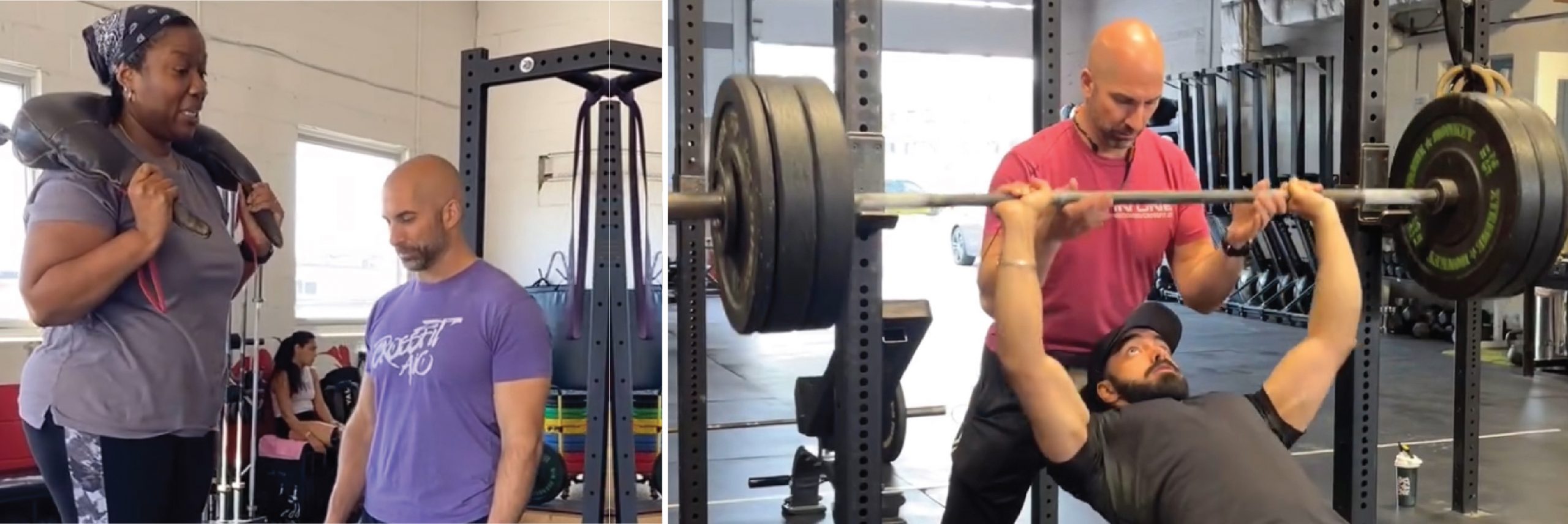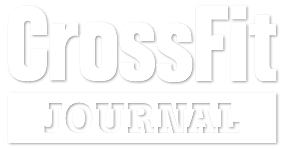Embarking on a personal training journey can be both exhilarating and daunting.
The path to achieving your fitness goals is filled with challenges and triumphs, and it’s essential to start with a solid foundation. At CrossFit AIO, our expert trainers have compiled a set of essential tips designed to guide you through this transformative experience.
Whether you’re stepping into a gym for the first time or returning to fitness after a hiatus, these insights will help you navigate your journey with confidence and purpose.
Here are our 11 Personal Training Tips for Beginners:
-
 Start with Simple Exercises
Start with Simple Exercises
One of the biggest mistakes beginners make is jumping into complex exercises too quickly. Instead, start with simple exercises and gradually add more complex ones as you become more comfortable. It’s better to build a solid foundation first.
This approach will help prevent injuries and ensure that you’re performing each exercise correctly. Remember, quality over quantity is key.
-
Set Realistic Goals
Setting realistic goals is crucial for success. Be patient in reaching them and don’t expect to see results overnight. Your goals should be specific, measurable, attainable, relevant, and time-bound (SMART).
For example, instead of saying “I want to lose weight,” try setting a goal like “I want to lose 10 pounds in the next three months.” This way, you’ll have a clear target to aim for and can track your progress along the way.
-
Properly Warm Up
Before starting your workout routine, make sure to properly warm up. Warming up helps prepare your body for work by increasing your heart rate and blood flow to your muscles. It also helps reduce the risk of injury.
A good warm-up should include dynamic stretches, such as arm circles, leg swings, and hip rotations, as well as five to ten minutes of light cardio, such as jogging or jumping jacks.
-
Stay Hydrated
Drink plenty of water throughout the day, especially during and after your workouts. Staying hydrated is essential for your overall health and well-being, and it becomes even more critical when you’re exercising.
Dehydration can lead to fatigue, dizziness, and muscle cramps, so be sure to drink water before, during, and after your workouts to keep your body functioning optimally.
-
Wear Comfortable Clothing
Wear comfortable clothing that allows you to move freely and without restriction. Your workout attire should be breathable, moisture-wicking, and comfortable. Choose clothes made from lightweight, stretchy materials that won’t chafe or irritate your skin.
Invest in a good pair of athletic shoes that provide proper support and cushioning for your feet. When you feel comfortable in what you’re wearing, you’ll be more likely to stick to your workout routine.
-
Cool Down and Stretch
Take a few minutes at the end of each workout to cool down and stretch out your muscles. Cooling down helps your heart rate and breathing return to normal gradually. It also helps prevent dizziness and reduces the risk of muscle soreness.
Spend five to ten minutes doing gentle, static stretches for all the major muscle groups you’ve worked during your workout. Stretching will help improve your flexibility and range of motion, making it easier to perform exercises correctly.
-
Practice Proper Form
Practice proper form when performing all exercises. This will help reduce the risk of injury and ensure that you’re targeting the right muscles. Pay close attention to your posture, alignment, and movement patterns.
If you’re unsure about how to perform an exercise correctly, don’t hesitate to ask one of our coaches for guidance. They’re here to help you get the most out of your workouts and achieve your fitness goals safely and effectively.
-
 Focus on Technique, Not Weight
Focus on Technique, Not Weight
Try not to focus on how much weight you’re lifting; instead, concentrate on completing the prescribed number of repetitions correctly. Proper form is far more important than lifting heavy weights. If you’re sacrificing form to lift heavier, you’re putting yourself at risk of injury.
Start with lighter weights and gradually increase the resistance as you become stronger and more confident. Remember, it’s better to do fewer reps with good form than to do more reps with poor form.
-
Eat a Balanced Diet
Eat healthy foods and monitor your caloric intake to support your fitness goals. Proper nutrition is essential for fueling your body and aiding in recovery. Focus on eating a balanced diet that includes lean proteins, whole grains, fruits, and vegetables.
Avoid processed foods, sugary snacks, and excessive amounts of alcohol. Pay attention to portion sizes and try to eat smaller, more frequent meals throughout the day to keep your energy levels up.
-
Track Your Progress
Keep track of your progress to see how far you’ve come. Whether it’s through a fitness app, a journal, or simply taking measurements, tracking your progress can help keep you motivated and accountable.
Set aside time each week to review your progress and make any necessary adjustments to your workout routine or nutrition plan. By tracking your progress, you’ll be able to see
-
Stay Positive and Motivated
Finally, stay positive, motivated, and dedicated, and you’ll see progress in no time! Remember, fitness is a journey, not a destination, so be patient with yourself and celebrate your successes along the way.
Surround yourself with supportive people who will encourage and inspire you to keep pushing forward, even on the tough days. With the right mindset and the right support, you can achieve anything you set your mind to.
By following these personal training tips for beginners, you’ll be well on your way to achieving your fitness goals. Remember, consistency is key. Stay patient, stay dedicated, and most importantly, enjoy the journey.


